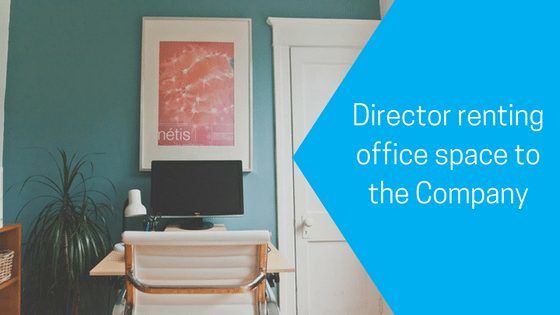As we have already mentioned in our earlier article, it is possible for directors to claim a work from home allowance under HMRC rules. This allows the director to reclaim an element of the running costs of the work from home office space. Unlike the self-employed, directors are not allowed to claim for a proportion of rent or mortgage interest. They are however, allowed to charge rent to the company for the occupation of the property.
The ‘commercial’ rental income must be declared in the land and property section of the director’s personal tax return.
- If the rent is charged at the same rate as the proportion of costs, then income will be offset by costs and there will be no rental profit to declare.
- If the income exceeds costs, there will be a taxable rental profit declared on the tax return.
A rental agreement should be put in place to evidence the commercial arrangement between the director and the company. The director then becomes the company landlord and is allowed to charge rent. the commercial agreement then allows the director to declare a proportion of costs in their personal tax return.
Rental income is not subject to National Insurance which makes it an effective way of withdrawing money from your business.
Setting up a formal agreement
- A non-exclusive licence may be created for the company to occupy an office during their trading hours – typically a home office is available for family or personal use outside out of trading hours.
- The intention to enter into the agreement should be evidenced in Board Minutes.
- The agreement should be put in place before or at the point of occupation and not backdated, and must be in joint names (affecting both landlords personal tax returns) if the property is joint owned.
- Rent may be below but should not exceed local commercial rates or it may be viewed by HMRC as being disguised distributions to the directors.
- Rent can include service charges for the incremental costs of heat, light and power etc. These should be calculated to reflect proportional costs so they don’t create a gain in your personal tax return.
- The householder should make sure that they are allowed to enter into such an arrangement with their mortgage provider, landlord and they should also make sure that the agreement would not affect their own household insurance.
Consider:
- The rental licence must be justified and the director must be able to evidence that they genuinely work from home and these costs are incurred wholly and exclusively for the purpose of running the business.
To licence or lease?
A non-exclusive annually renewable licence for the use of a home office is far more flexible and forgiving than a formal lease which is governed by the Landlord and Tenant Act which could have Capital Gains Tax and Business Rates implications. If you are leasing substantial or separate buildings then a lease formal lease agreement would be appropriate and you would need to consult a lawyer to draw up the agreement.
Caseron Masterclasses
If you'd like to take a deeper dive into this topic, take a look at our bloody brilliant business masterclass and download.





